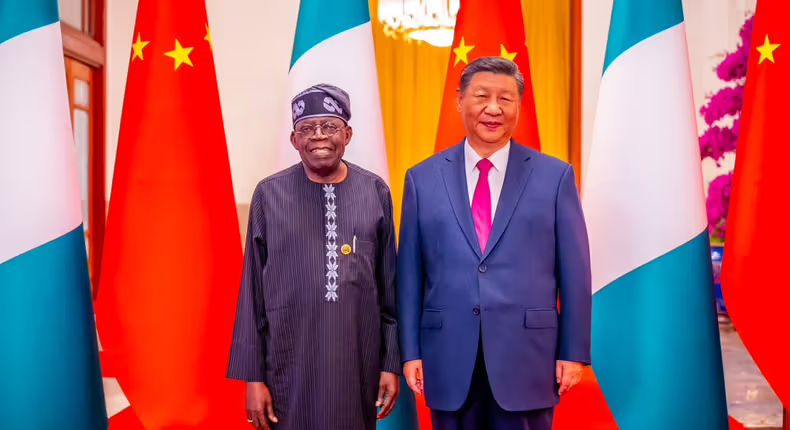2 mn read
President Bola Tinubu’s diplomatic visit to China resulted in several landmark agreements aimed at enhancing bilateral relations and fostering economic growth. These agreements span various sectors, including energy, infrastructure, and technology.
- BILATERAL CURRENCY SWAP AGREEMENT One of the key agreements was the expansion of the bilateral currency swap deal between the Central Bank of Nigeria (CBN) and the People’s Bank of China (PBoC). This deal is designed to facilitate trade and investment by allowing currency exchanges without relying heavily on the US dollar. The renewed agreement aims to increase liquidity in the Nigerian market and ease trade transactions, potentially improving the availability of the Chinese yuan for Nigerian businesses.
- INFRASTRUCTURE DEVELOPMENT AGREEMENT A significant focus was placed on infrastructure development, including road, rail, and energy projects. China committed to providing substantial funding and technical support for Nigeria’s infrastructure master plan, including the Lagos-Calabar coastal railway project. This support is expected to expedite critical infrastructure projects and enhance Nigeria’s transportation and logistics networks.
- POWER GENERATION AGREEMENT Nigeria and China signed a comprehensive power generation agreement to address Nigeria’s power shortages. This agreement includes the development of new power plants, upgrading existing facilities, and expanding renewable energy sources. China’s assistance is aimed at increasing Nigeria’s power generation capacity, reducing blackouts, and supporting industrial growth.
- MINING AND SOLID MINERALS COOPERATION To diversify Nigeria’s economy, an agreement focusing on mining and solid minerals exploration was signed. China will provide technical expertise and equipment to develop Nigeria’s mining sector, including training Nigerian professionals and transferring modern mining techniques. This partnership is expected to boost revenues from solid minerals and create jobs.
- TECHNOLOGY AND TELECOMMUNICATIONS AGREEMENT The technology and telecommunications agreement seeks to enhance Nigeria’s digital infrastructure and improve internet penetration. Chinese tech giants, such as Huawei and ZTE, are expected to play a key role in deploying 5G networks and expanding broadband access. The agreement also includes cybersecurity cooperation to address cyber threats.
- CULTURAL EXCHANGE AND EDUCATION AGREEMENT This agreement aims to strengthen ties between Nigerian and Chinese educational institutions through student exchange programs, scholarships, and collaborations between universities. It also promotes Chinese language studies in Nigerian schools and increases cultural exchange programs to enhance mutual understanding.
- AGRICULTURAL COOPERATION AGREEMENT The agricultural cooperation agreement focuses on improving food security and agricultural productivity in Nigeria. China will transfer agricultural technology, provide investment, and fund irrigation projects. This partnership is expected to boost Nigeria’s domestic food production and reduce dependence on food imports.
As both nations work to implement these agreements, the Nigerian government anticipates job creation

